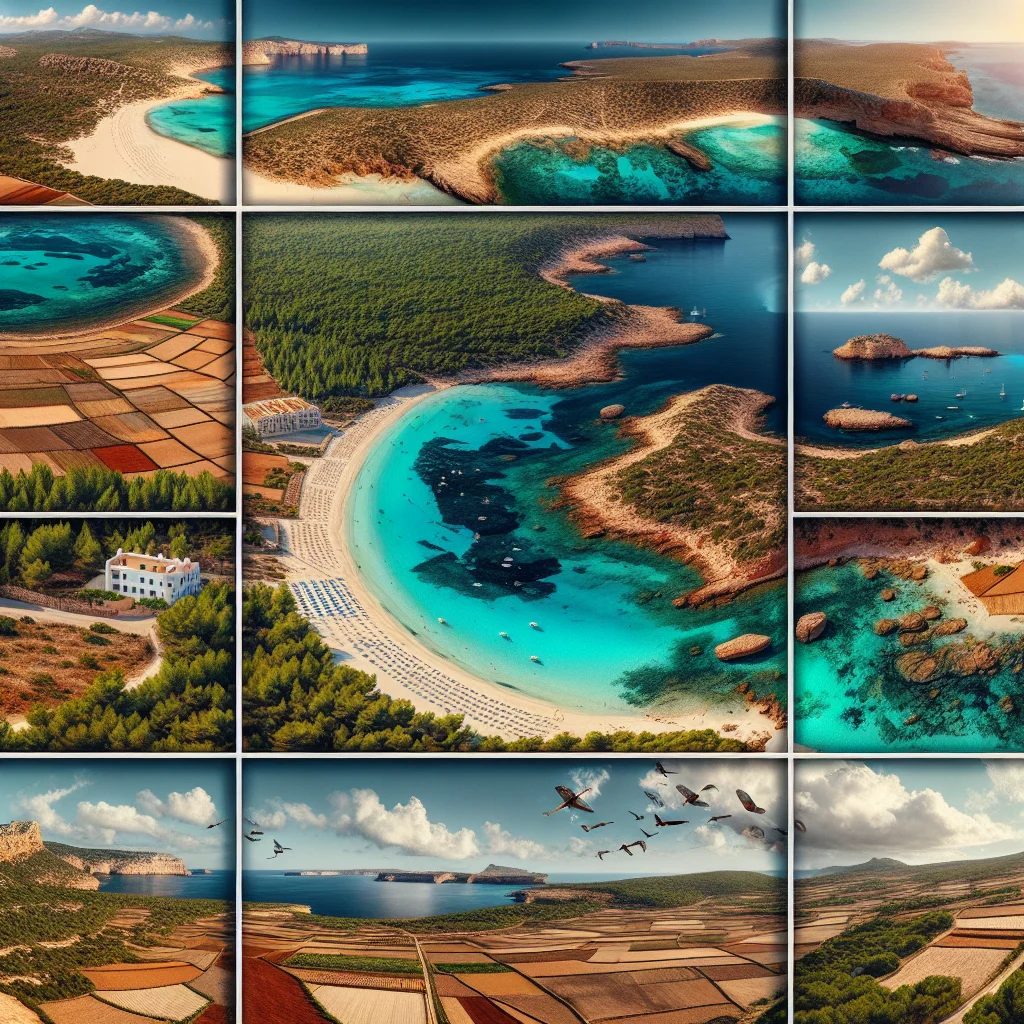Discover Formentera's Diverse Ecosystems and Wild Heritage
April 30, 2025

Formentera is not just a sun-soaked destination; it’s a vibrant sanctuary brimming with diverse ecosystems and an array of fascinating wildlife. As one of the last unspoiled Mediterranean islands, Formentera offers eco-tourism enthusiasts a unique opportunity to immerse themselves in nature. This article delves into the island’s rich ecological heritage, highlighting stunning landscapes, remarkable flora, and wildlife conservation tips that resonate with sustainable travel practices.
The Natural Landscape of Formentera
Formentera's varied landscape consists of stunning beaches, rugged cliffs, lush pine forests, and vast salt flats. This diversity creates unique habitats that support a wide range of species. A perfect example is the Es Pujols beach area, where tourists can observe the delicate interplay between sea and land. Moreover, the seagrass meadows of Posidonia oceanica, a protected species, flourish in the surrounding waters, playing a vital role in keeping the ocean crystal clear and supporting marine life.
In contrast, the Ses Salines Natural Park is recognized for its salt ponds and migratory birds, making it an ideal spot for bird watchers. Species such as the greater flamingo and various herons can often be spotted here during your visit, especially in spring when they come to breed.
Flora: A Botanical Wonderland
Formentera is teeming with diverse plant species, many of which are endemic to the Balearic Islands. The rugged terrain houses a range of plants that have adapted to the island's specific conditions. The Formentera lily, for instance, is a stunning flower that flourishes in sandy soils, and it is one of the island’s proud symbols. The island's biodiversity is not just of aesthetic value—it plays a crucial role in maintaining ecological balance.
One notable plant to mention is rosemary, which thrives in the Mediterranean climate and can be seen frequently throughout the island. Locals often use it in traditional dishes, showcasing the deep connection between nature and culture in Formentera.
Wildlife: Savouring Natural Encounters
Home to a rich variety of wildlife, Formentera is a focal point for nature lovers. The island’s coastal waters are home to adorable resident species like the loggerhead sea turtle, dolphins, and numerous fish varieties. Those interested in marine life should consider booking a sightseeing trip; local companies offer eco-friendly boat tours that minimize disturbance to the animals and their habitats.
Additionally, Francesco Caputo, a local environmentalist, emphasizes the importance of conservation initiatives being undertaken on the island. These efforts are particularly critical for protecting the native species from invasive plants that threaten to disrupt the ecological balance.
Best Practices for Wildlife Conservation
As responsible travelers, it is paramount to adopt sustainable practices while enjoying the natural beauty of Formentera. Here are several guidelines that will help minimize your ecological footprint:
- Stay on Marked Paths: Exploring the island’s trails can lead to wonderful discoveries, but make sure to stick to marked paths to avoid trampling on sensitive flora.
- Respect Wildlife: Observing animals from a distance is essential to their safety and your own. Avoid feeding wildlife, as human food can disrupt their natural diet and behaviors.
- Support Local Conservation Efforts: Participate in local clean-up events or contribute to conservation organizations working in the area.
- Use Eco-Friendly Products: Bring biodegradable toiletries and refillable water bottles to reduce plastic waste.
- Choose Sustainable Accommodations: Opt for eco-friendly lodgings that prioritize environmental protection and conservation efforts.
By adhering to these practices, you not only enhance your travel experience but also contribute positively to Formentera's ecology and preservation.
Seasonal Wonders and Eco-Tourism Opportunities
Each season on Formentera brings its own charm, showcasing both the island's beauty and the importance of biodiversity. Spring heralds blooming wildflowers, while summer is ideal for observing marine life in the azure waters. Autumn offers a serene atmosphere with fewer tourists, making it an ideal time to connect with nature and partake in quieter wildlife observation.
Many eco-tourism operators also provide guided tours focusing on local ecosystems, where visitors can learn about conservation, ecology, and the rich heritage of Formentera. These tours usually encourage discussions around sustainable practices, fostering a greater awareness and appreciation of the island's natural wonders.
Conclusion
Formentera is a remarkable destination for eco-tourism, blending breathtaking natural environments with a rich diversity of wildlife. Its preservation is a shared responsibility among visitors and locals alike. By understanding and respecting the island’s ecosystems, travelers can enjoy its beauty while contributing significantly to its protection and sustainability. Embracing these principles not only enriches travel experiences but also ensures that future generations can enjoy Formentera’s unparalleled natural heritage.
Back